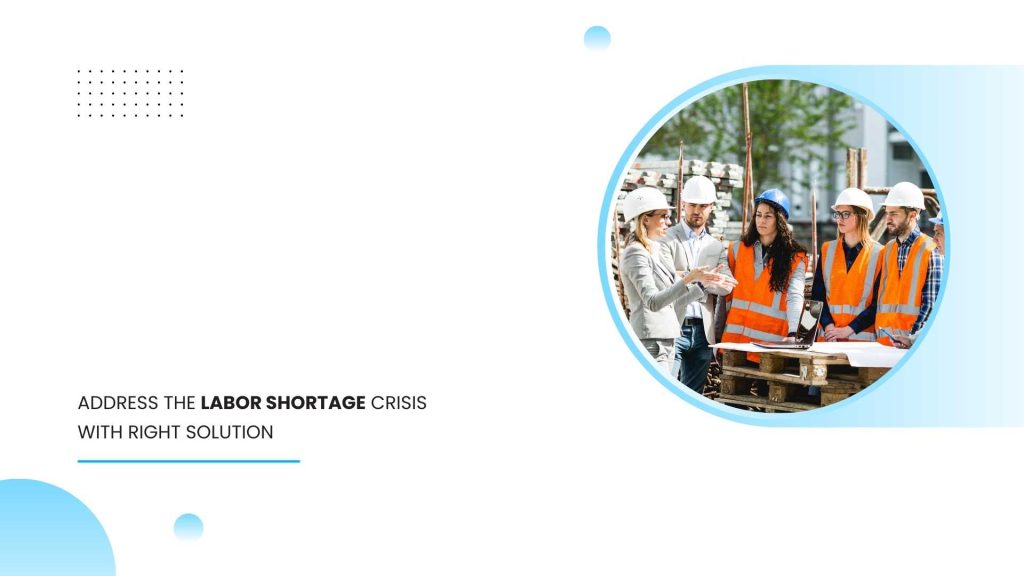In recent years, businesses across industries have grappled with a significant challenge: the labor shortage crisis. Finding and retaining skilled workers in industries ranging from manufacturing to hospitality has become increasingly difficult.
Nevertheless, within this challenge, there exists a potent solution that numerous organizations are disregarding: ERP systems. We will delve into how ERP solutions can mitigate the labor shortage crisis and propel business achievement.
Understanding the Labor Shortage Crisis:
Before delving into the role of ERP solutions, it’s important to understand the root causes of the labor shortage crisis. Factors such as an aging workforce, changing demographics, skill gaps, and evolving work preferences have all contributed to this challenge. As a result, businesses need help filling critical positions, meeting production demands, and maintaining operational efficiency.
The Role of ERP Solutions:
ERP systems are comprehensive platforms integrating various business processes and functions into a centralized system. While ERP solutions are traditionally known for streamlining operations, managing resources, and improving productivity, their impact on addressing the labor shortage crisis is often overlooked. Here’s how ERP solutions can make a difference:
Enhanced Efficiency and Automation:
One of ERP systems’ primary benefits is their ability to automate repetitive tasks and streamline workflows. Businesses can reduce their reliance on manual labor by automating manual operations, inventory management, and order processing. It frees employees to focus on more value-added tasks and mitigates the impact of labor shortages on day-to-day operations.
Skills Gap Bridging:
Many ERP solutions offer built-in training modules and knowledge repositories that help employees acquire new skills and competencies. With intuitive user interfaces and guided learning paths, ERP systems enable workers to quickly adapt to changing job requirements and bridge skill gaps. It is particularly valuable in industries facing acute shortages of specialized talent, such as manufacturing and engineering.
Improved Resource Allocation:
ERP systems provide real-time visibility into resource utilization, enabling businesses to optimize their workforce allocation strategies. By accurately forecasting demand, identifying capacity constraints, and aligning staffing levels with production needs, organizations can maximize the efficiency of their labor force. It ensures that they operate leanly and effectively, even in labor shortages.
Remote Work Enablement:
Many businesses are embracing remote work arrangements to access a broader talent pool in response to the labor shortage crisis. ERP solutions facilitate remote collaboration and seamless communication among distributed teams.
Cloud-based ERP platforms, in particular, provide access to critical business data and applications anytime, anywhere, empowering remote workers to contribute effectively regardless of their location.
Talent Retention and Engagement:
Beyond recruitment, ERP systems also contribute to talent retention and employee engagement. Businesses can create a supportive and empowering work environment by providing employees with tools for self-service, career development, and performance management.
Additionally, ERP systems can facilitate transparent communication, recognition programs, and feedback mechanisms that foster a culture of continuous improvement and loyalty.
Conclusion:
As businesses navigate the complexities of the labor shortage crisis, leveraging Acumatica ERP solutions has emerged as a strategic imperative. By enhancing efficiency, bridging skills gaps, optimizing resource allocation, enabling remote work, and fostering talent retention, ERP systems offer a multifaceted approach to addressing this pressing challenge.
By embracing ERP solutions, organizations can not only overcome the hurdles posed by labor shortages but also position themselves for sustained growth and success in the evolving business landscape.

Vijay comes with a vast experience in ERP and enterprise solutions space with about 20 years of experience in various packaged application like Acumatica, SAP, Orion, Salesforce.com, SugarCRM and, SalesLogix.

